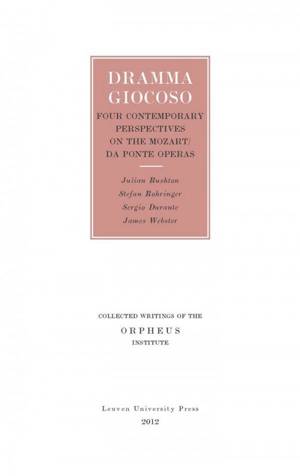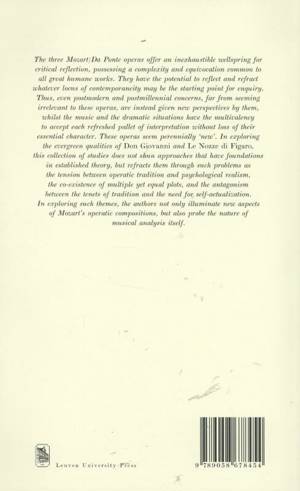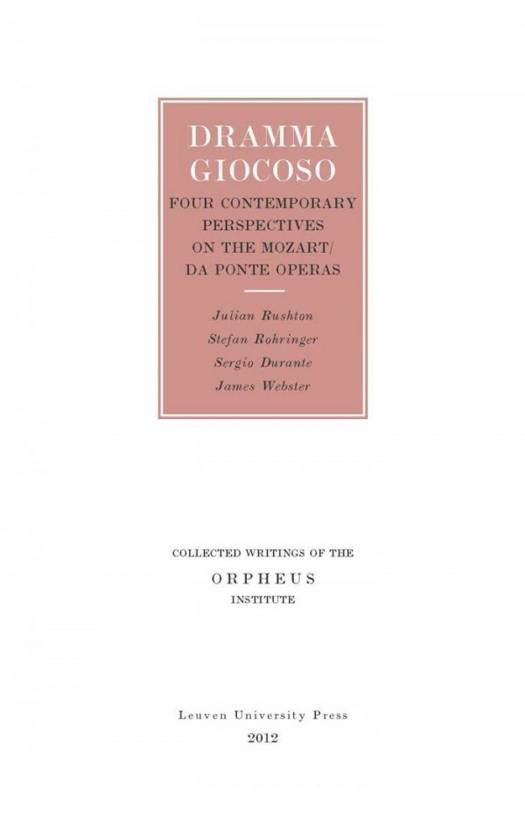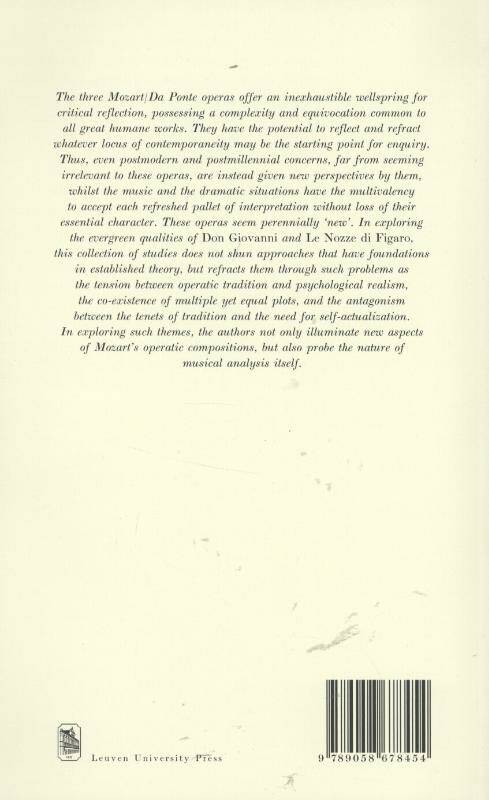
- Afhalen na 1 uur in een winkel met voorraad
- Gratis thuislevering in België vanaf € 30
- Ruim aanbod met 7 miljoen producten
- Afhalen na 1 uur in een winkel met voorraad
- Gratis thuislevering in België vanaf € 30
- Ruim aanbod met 7 miljoen producten


Dramma Giocoso
Post-Millennial Encounters with the Mozart/Da Ponte Operas
Sergio Durante, Stefan Rohringer, Julian Rushton, James WebsterOmschrijving
The three Mozart/Da Ponte operas offer a inexhaustible wellspring for critical reflection, possessing a complexity and equivocation common to all great humane works. They have the potential to reflect and refract whatever locus of contemporaneity may be the starting point for enquiry. Thus, even postmodern and postmillennial concerns, far from seeming irrelevant to these operas, are instead given new perspectives by them, while the music and the dramatic situations have the multivalency to accept each refreshed palette of interpretation without loss of their essential character. These operas seem perennially new. In exploring the evergreen qualities of Don Giovanni and Le Nozze di Figaro, the authors of this book do not shun approaches that have foundations in established theory, but refract them through such problems as the tension between operatic tradition and psychological realism, the coexistence of multiple yet equal plots, and the antagonism between the tenets of tradition and the need for self-actualization. In exploring such themes, the authors not only illuminate new aspects of Mozart's operatic compositions but also probe the nature of musical analysis itself.
Specificaties
Betrokkenen
- Auteur(s):
- Uitgeverij:
Inhoud
- Aantal bladzijden:
- 140
- Taal:
- Engels
- Reeks:
Eigenschappen
- Productcode (EAN):
- 9789058678454
- Verschijningsdatum:
- 15/07/2012
- Uitvoering:
- Paperback
- Formaat:
- Trade paperback (VS)
- Afmetingen:
- 145 mm x 239 mm
- Gewicht:
- 272 g

Alleen bij Standaard Boekhandel
Beoordelingen
We publiceren alleen reviews die voldoen aan de voorwaarden voor reviews. Bekijk onze voorwaarden voor reviews.









